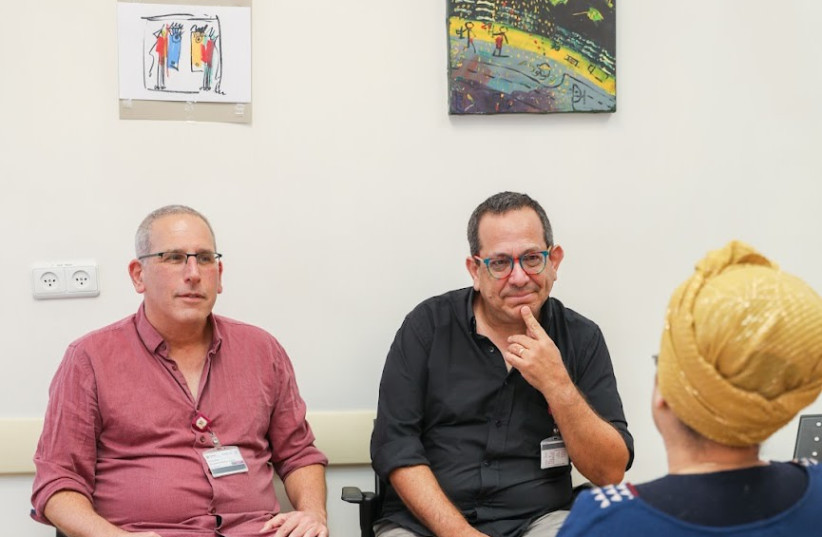Even when a desperate person attempts suicide and is likely to try again, it is possible to prevent it, according to researchers at the Rambam Healthcare Campus in Haifa who managed to avert suicide in all but one of 571 patients they treated.
It is common to assume that those who try to commit suicide will succeed in the end, but in practice, it is certainly possible to ward off such desperate acts, using simple tools, quick response and focusing on the goal of preserving life, explains Dr. Eyal Fruchter, director of Rambam’s mental health division and the initiator of the suicide prevention program.
Five years after he launched the program – the first of its kind in an Israeli medical center – with the aim of preventing repeated suicide attempts among those who are hospitalized, Fruchter presented encouraging data on the ability to reduce the number of people who will try to take their own lives again. Since the program began, 571 have been treated under it patients after a suicide attempt, and only one of them made a repeat attempt that resulted in his death.
According to Health Ministry data, in 2017 – the year in which the program was established at Rambam – 402 cases of suicide were recorded; 305 of them were men and 97 were women. The data also shows that suicide is the second cause of death for teenage boys and young adults aged 15 to 24 and the third for girls aged 15 to 24 and men aged 25 to 44.
As for suicide attempts, between 2009 and 2019, there were an average of 6,200 suicide attempts annually, and in 2019 their number rose to 6,838. In the years 2012 to 2019, the rate of suicide attempts was stable, with women recording a 1.3 to 1.4 times higher rate compared to men. Out of all the cases that came to Rambam after a suicide attempt, 70% were Jews and 30% were Arabs.

These discouraging data are what led to the opening of Rambam’s prevention program. The care providers try to reach the cases that are being treated in the medical center’s emergency department already during their hospitalization and to perform an assessment and intervention in an immediate or short period of time, depending on the patient's condition. According to therapeutic models that have proven very successful, the results translate into lives saved.
In the past, such patients were released to continue treatment in the community and in many cases, they would fall through the cracks due to long queues, dealing with bureaucracy and an inability to cope with the situation while they struggled with themselves.
“With the help of relatively simple tools, with an emphasis on quick and tailored intervention for the condition of these patients, we were able to prevent hundreds of patients from repeating their suicide attempts," Fruchter explained.
“With the help of relatively simple tools, with an emphasis on quick and tailored intervention for the condition of these patients, we were able to prevent hundreds of patients from repeating their suicide attempts."
Dr. Eyal Fruchter
After a suicide attempt, a psychiatrist diagnoses the person’s medical and mental condition. The psychiatrist also explains to the patient about the program and the available treatment options it offers. Within a day of the diagnosis, the patient is invited to continue treatment at Rambam’s mental-health clinic, where intervention is carried out over several sessions by an individual therapist with training to deal with crisis situations. The entire treatment is recognized by all four health funds. Other hospitals have asked for guidance from Rambam on setting up similar programs.
Psychotherapist Avi Levy, a recognized instructor in cognitive behavioral therapy who is director of the department of social work’s psychiatric division, the figure on Arab suicides and attempts should be a warning about the growing distress among the Arab population in the Haifa area. “There are changes in the Arab sector,” he said. “We see an increase here that can be explained by the increasing readiness to respond to mental health processes among this group, but we can‘t ignore the fact that the percentage here is higher than their representation of the population in the Haifa and North region, which is about 20%.
